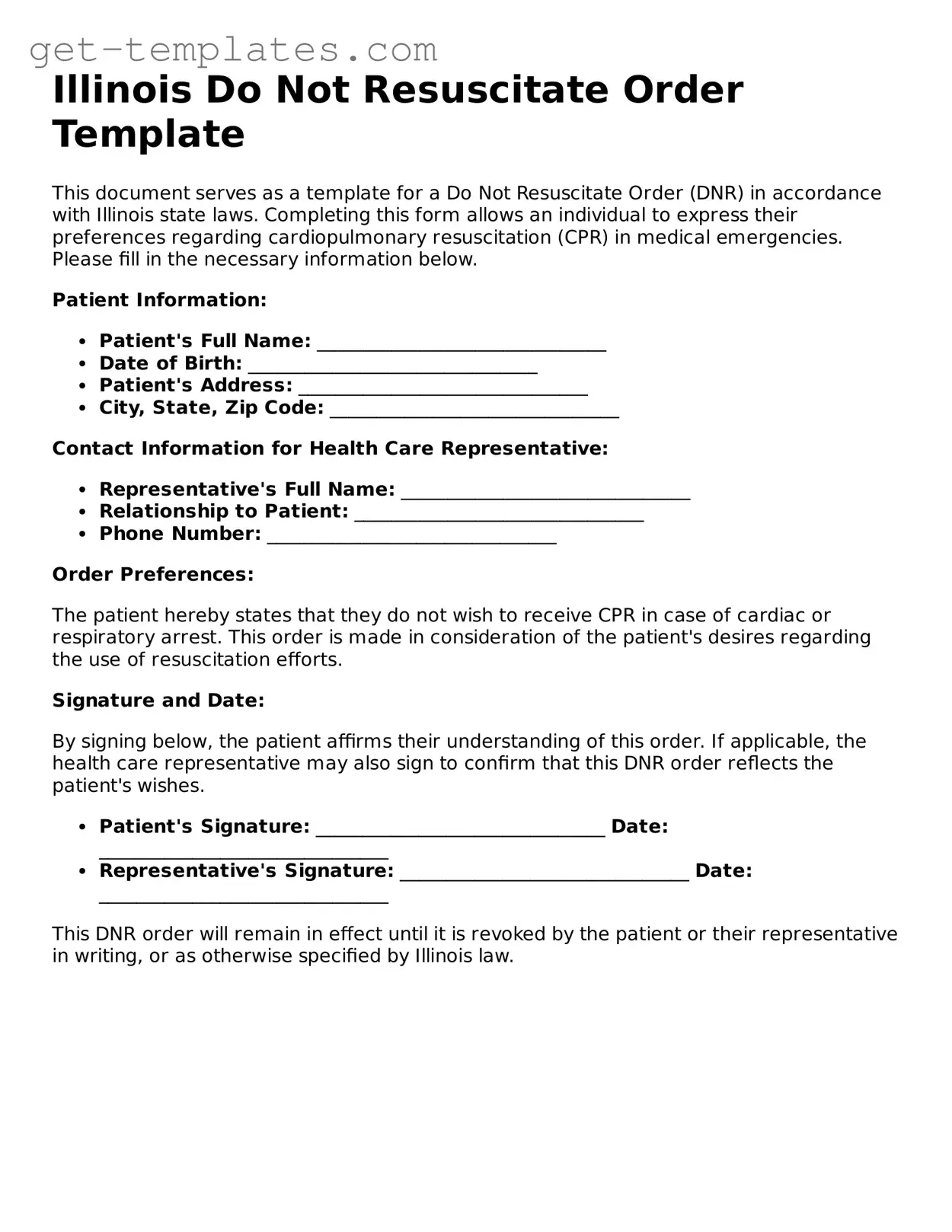What is a Do Not Resuscitate (DNR) Order in Illinois?
A Do Not Resuscitate Order is a legal document that allows a person to refuse cardiopulmonary resuscitation (CPR) and other life-saving measures in the event of cardiac arrest or respiratory failure. In Illinois, this order is typically used by individuals who have a terminal illness or are in a state of advanced illness, where resuscitation would not improve their quality of life.
Who can complete a DNR Order in Illinois?
In Illinois, a DNR Order can be completed by a patient who is at least 18 years old and has the capacity to make their own medical decisions. If the patient is unable to make decisions, a legally authorized representative, such as a spouse, adult child, or legal guardian, may complete the order on their behalf. It is important that the individual understands the implications of the DNR Order before signing.
The Illinois DNR Order form can be obtained from various sources, including:
-
Your healthcare provider or physician's office.
-
Hospitals and medical facilities.
-
Online from the Illinois Department of Public Health website.
It is advisable to discuss your wishes with your healthcare provider, who can assist you in filling out the form correctly.
The DNR Order form typically requires the following information:
-
The patient's name and date of birth.
-
The name of the physician completing the order.
-
The signature of the patient or their authorized representative.
-
The date the form was signed.
Additionally, it may include a section for the physician to provide details about the patient’s medical condition and treatment preferences.
Is a DNR Order valid in all healthcare settings?
Yes, a properly completed and signed DNR Order is valid in all healthcare settings within Illinois, including hospitals, nursing homes, and at home. However, it is crucial to ensure that copies of the DNR Order are readily available and accessible to all healthcare providers involved in the patient's care. This ensures that the patient's wishes are respected in emergencies.
Can a DNR Order be revoked?
Absolutely. A DNR Order can be revoked at any time by the patient or their authorized representative. To revoke the order, simply destroy the existing DNR form and inform your healthcare providers of the decision. It is essential to communicate this change clearly to ensure that your current wishes are understood and honored.
What should I discuss with my healthcare provider regarding a DNR Order?
It is important to have an open and honest conversation with your healthcare provider about your wishes and concerns regarding a DNR Order. Consider discussing the following topics:
-
Your understanding of your medical condition and prognosis.
-
Your values and preferences regarding end-of-life care.
-
The potential benefits and burdens of resuscitation.
-
Any other advance directives you may wish to consider.
This dialogue can help ensure that your decisions align with your values and that your healthcare team understands your wishes clearly.

